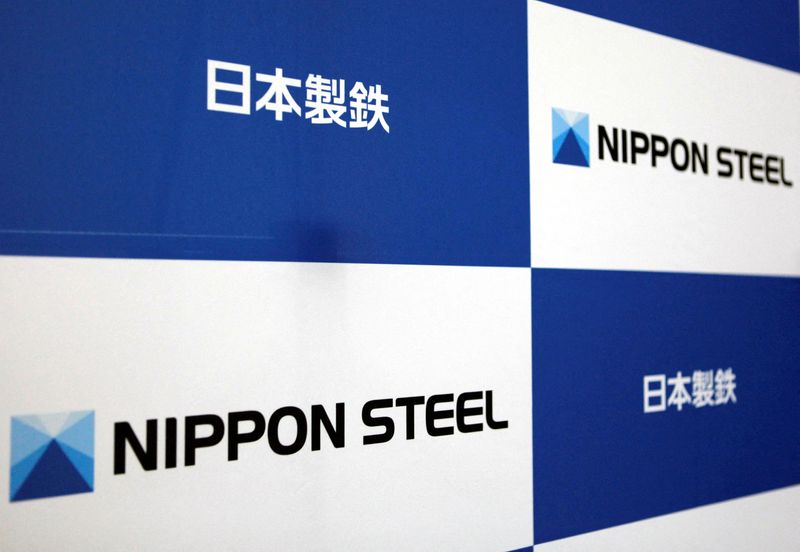
By Noriyuki Hirata, Yuka Obayashi and Katya Golubkova
TOKYO (Reuters) -Japan’s Nippon Steel may need to look at a revamp of its growth strategy after U.S. President Joe Biden blocked its proposed $14.9 billion acquisition of U.S. Steel, but its share price could bounce back in the near-term, analysts said.
Shares in Nippon Steel fell only slightly on Monday in their first trading since Biden on Friday rejected the deal after a year-long review, citing national security concerns.
Biden’s opposition to the deal had been well-flagged and U.S. Steel shares had been trading far below the offer price as a result. Nevertheless, Japan’s largest business lobby said the decision was a cause for concern regarding future U.S. investment.
Nippon Steel shares closed down 0.75% at 3,158 yen ($20.03) on Monday, compared with a 1% fall in broader Topix index. They settled at 3,182 yen on Dec. 30, the final trading day of 2024 on the Tokyo Stock Exchange, which was closed for the remainder of last week for the New Year holiday.
“Some investors may view the failure of the U.S. Steel acquisition as alleviating financial concerns due to the substantial amount of money involved in the deal,” said Yoshihiko Tabei, chief strategist at Naito Securities.
Nippon Steel had not finalised a permanent financing plan for the all-cash deal but said raising equity was among the possibilities.
Tabei, however, noted that uncertainty remains, as achieving medium- to long-term growth will likely be challenging without expanding operations in the U.S.
With U.S. Steel, Nippon Steel aimed to raise its global crude steel production capacity to 85 million metric tons per year from 65 million tons now, nearing its long-term goal of lifting production capacity to 100 million tons.
The proposed deal has not yet been terminated by the companies even after Biden blocked the purchase.
In a joint statement, Nippon Steel and U.S. Steel called Biden’s decision “unlawful” and said they will take all appropriate action to protect their legal rights.
Nippon Steel will owe U.S. Steel a $565 million break fee if it is not completed.
Still, some analysts think the failure of the deal could boost shares in Nippon Steel.
“Even if the deal does not proceed, Nippon Steel’s earnings outlook remains unchanged, with significant growth expected in the next financial year starting in April,” Yuji Matsumoto, an analyst at Nomura Securities said in a note.
“Additionally, the removal of financing uncertainty related to the acquisition is likely to support a near-term increase in the stock price,” he said.


